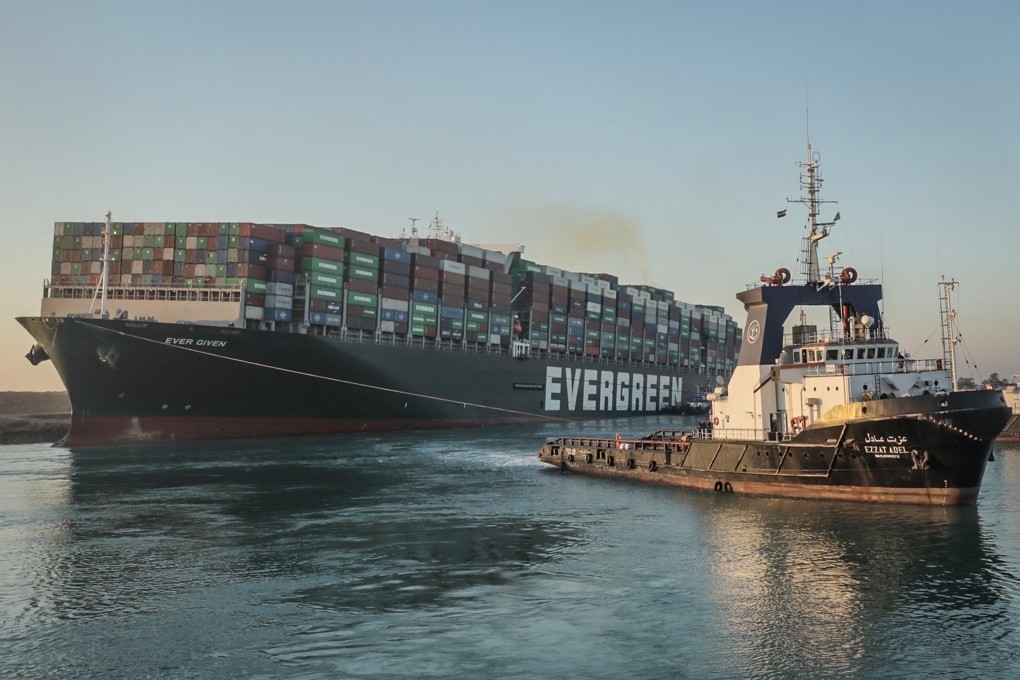China container maker reaping rewards as Suez Canal blockage adds to global shortage, demand set for record high
- China International Marine Containers (CIMC) has seen the price of their 20-foot standard container (TEU) more than double from a year earlier to above US$3,500
- The blockage of the Suez Canal by the Ever Given ultra-large container ship has created a backlog of hundreds of vessels, which is set to further exacerbate global container shortages

Worsened by the recent Suez Canal blockage, global demand for containers could hit a historic high this year, further pushing up costs of shipping, according to the world’s largest container manufacturer.
“We have full orders for the first half of 2021, and expect the demand for containers to set new records this year. The latest blockage at the Suez Canal could worsen the shortage of containers for a longer time,” said Mai on Tuesday.
But it could take days or weeks to clear the backlog of hundreds of vessels, and analysts are worried that the delays could slow down empty container handling at ports and further exacerbate shortages.
“The knock-on effect to supply chains is also complicated by the congestion at many ports in Asia and Europe. While the absence of a week’s worth of Suez-routed arrivals may help clear immediate backlogs, [there is] a wave of new arrivals and the need to rapidly move products onwards from ports,” said analysts from Panjiva, a trade database under S&P Global.